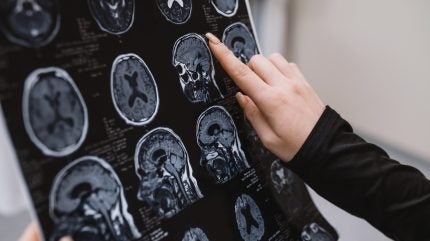

The University of Southern California (USC) has received a $6m grant from the California Institute for Regenerative Medicine (CIRM) to advance a new gene therapy for glioblastoma.
The treatment is the first gene therapy for this aggressive brain cancer to use a precision delivery system designed to minimise harm to non-cancerous cells.

Discover B2B Marketing That Performs
Combine business intelligence and editorial excellence to reach engaged professionals across 36 leading media platforms.
USC, in collaboration with the University of Florida’s Zolotukhin Lab, has been awarded the three-year grant to progress the treatment through clinical trials.
USC neurological surgery and neurology associate professor and USC Keck School of Medicine neuro-oncology division chief David Tran, along with his team, have identified “master regulators” within glioblastoma leveraging AI technology.
These key genes, mostly dormant since early foetal development, are essential for the tumour’s survival. The team’s discovery of nine master genes, seven of which are developmental, opens up new targets for the therapy.
David is also the co-director of the USC Brain Tumor Center.

US Tariffs are shifting - will you react or anticipate?
Don’t let policy changes catch you off guard. Stay proactive with real-time data and expert analysis.
By GlobalDataHe stated: “The personalised treatment you hear about for this type of cancer often feels like a game of whack-a-mole. By the time you’ve sequenced a patient’s tumour, identified all its mutations, personalised a treatment plan, and developed the therapy, the tumour you’re treating is no longer the same. There’s a new set of mutations. So, you wind up chasing your tail.”
The team has also identified a delivery mechanism for the therapy using a common adeno-associated virus (AAV), developed a library of ten billion AAV variants and screened them for the ability to infect glioblastoma cells without affecting healthy brain tissue.
The team identified one candidate, known as T6, which demonstrates a high preference for infecting cancer cells in mice.
The funding will facilitate the preparation of the delivery vehicle and drug target for clinical trials.
It will also aid in refining conduction-enhanced delivery, a surgical procedure for administering gene therapy.
USC investigators are developing a computational method to map tumour flow patterns, improving catheter placement and drug diffusion.
Collaborating with the USC/Children’s Hospital Los Angeles’ cGMP facility, the grant team will ensure that all treatment products and protocols adhere to the Food and Drug Administration’s cGMP [current good manufacturing practice] standards for human efficacy and safety.
Further preclinical testing is planned to validate the laboratory model outcomes.
Cell & Gene Therapy coverage on Pharmaceutical Technology is supported by Cytiva.
Editorial content is independently produced and follows the highest standards of journalistic integrity. Topic sponsors are not involved in the creation of editorial content.




